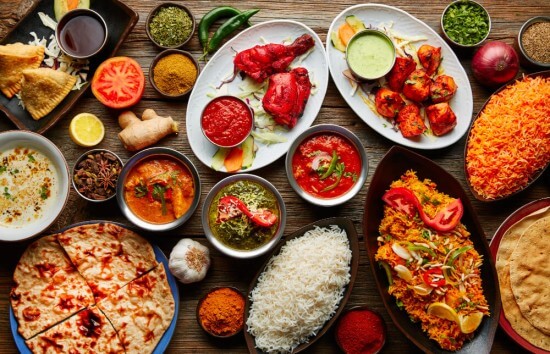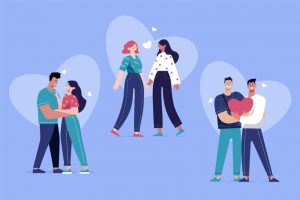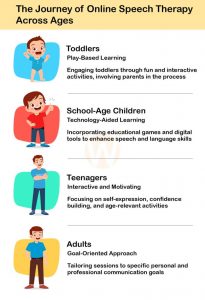Food affecting your stress in all the ways | know more how food affects your mood
By Prapoorna M
Last Updated: November 27, 2021
Have you ever suddenly carved for chocolates or some bakery foods? Have you observed a sudden change in your weight or health in a short period, especially when you have just gone through some stressful conditions? It’s very common that we are in great mood sometimes for no reasons and are in bad mood even though everything is fine. Ever wondered why this happens?
How are food and mood inter-related?
It is often said that we are what we eat. In the same way, what we eat can influence what we become. Actually, it is often observed that people feel like having chocolates or sweets when stressed. In the same way, writers feel like having coffee often when they ponder over something. Since ages, people have been wondering the way food is affecting our mental health. Food is the real stress buffer and the factor too. So, one should be cautious enough on what to eat and when to eat.
Food and mood has an intangible relationship. We face this in our daily life. Whenever we need to focus on something really important, or take up an important task, it usually goes the other way when done on an empty stomach. Hunger really takes a toll on our mood. In the same way, most people in the world believe that it’s good to eat something sweet before going to attempt something new or doing a good deed. Having sweet eases and calms down our body enabling good thoughts, activeness, and attention of the mind by releasing the dopamine and serotonin hormones in the mind.

Food that’s really good for a better mood
Have you ever wondered why having some tasty and healthy food, feels like a refresh button? Some studies show that, omega-3 fatty acids and some minerals such as selenium, magnesium, and zinc could prevent mood disorders and support cognitive processes. Experts say that Iron, folic acid and thiamine are important nutrients that have strong links to the mood. Iron-fortified grains and Iron-rich foods such as broccoli, seafood, meat, egg-yolks etc. help stabilize energy levels and enhance mood while the Iron deficiency in the body can create fatigue and lead to a depressed mood.
The balance of Macros
Diets that are high in saturated fats tend to regulate molecular substrates that support cognitive processing and increasing the risk of neurological dysfunction in both humans and animals. Usually the foods that create bad moods or fluctuating moods are the ones that produce more sugars in the body.
Refined carbohydrates and refined starches such as white rice, white bread and crackers are the main culprits while junk foods, drinks, syrup, jam, candy, soda etc. are the ones that make your blood sugar levels to swing badly. Though these crazy foods boost your energy instantly, that is also followed by cranky and tired feeling. Most relevant studies reveal that an unhealthy diet is a significant risk factor for future depressive symptoms.
Every simple food of our daily intake, affects the brain. We can ourselves observe the way we react when we have our favorite food and the one we don’t like. When we have a meal that we dislike, a perpetual aversion to its flavor is developed through complex mechanisms of learning and memory that involve the hypothalamus, the hippo-campus and the amygdala. In the same way, pleasant memories of foods are related to brain pathways that are associated with rewards. This is the reason we feel aversion towards some foods while we love to have some. Consumption of alcohol also affects our mood badly as it is a depressant and can disturb our sleep.
Eating Enough
One should eat often enough. Eating at regular intervals helps to ensure that your body has a continuous source of fuel which assists in keeping your mood stable. Some people tend to feel the need to eat more frequently, which could be due to the fluctuating sugar levels in the body, and this pattern is termed as Hypoglycemia.
Eating Disorders
Over-eating or Eating when not hungry could indicate some psychological issues and they do create some side-effects. Eating disorders are serious, potentially life threatening conditions that affect every organ system of the body. There are certain eating disorders that are well-known.
Binge Eating Disorder
Mostly known as Compulsive eating disorder, this Binge eating disorder is identified when someone starts eating even when they don’t feel hungry. It is a bit similar to the thought of having popcorn while watching a movie. This thought sometimes feels like really funny, because you are watching a movie after having a full complete meal.
Well, let’s say that it’s just a thought and no harm in having once. But, your popcorn may be finished in 15 mins and you still feel like having something just like that, though you are not hungry. Now this can be understood as a BED or Binge Eating Disorder. Binge eating disorder is similar to having something because you saw it deliciously ready on the table and you are tempted to put in your mouth, not bothering about the space in your stomach.
Though binge eating is common among both men and women having normal weight, it often leads to obesity or over-weight that reinforces further over eating. This process makes one obese and sluggish. People with binge eating disorder might struggle with emotions of disgust and guilt and often have a related co-morbidity, such as depression and anxiety. Such negative feelings could often lead them to continue using eating habits to cope with, which throws them into a vicious cycle.
Emotional Eating

Emotional eating or the stress eating, as the name implies, refers to eating over a mood, rather than for being hungry. We don’t always eat because we are hungry. We may usually turn to food when feeling like bored, dull, sad or lonely. It is okay to occasionally treat ourselves with a slice of pizza or a piece of pastry, or may be a pint of ice cream.
But it becomes a problem when you choose eating for coping with your emotional imbalances. When you find yourself impulsive to open a refrigerator or grab a snack when you are stressed, upset, angry, exhausted, boring or lonely, it says that you are an emotional eater.
Mind carves for such foods to soothe the muscles. As and when such foods are consumed, our mind goes into a relaxed state, calming down the body. There’s no problem with such eating habits when are in control. This means, after having one or two pieces of sweet, or after a good cup of coffee, one should feel satiated and give up carving for more. But if the carving continues making you to finish the whole big packet of sweets, it shows that there’s no control on your eating, which is termed as Emotional
eating.
Hence we can clearly understand such a situation by questioning ourselves like
- How much do we eat, especially under an emotion?
- How often do we choose to eat as a coping technique?
- What are the other ways we are coping difficult emotions?
Emotional eating or Binge eating can lead to obesity, difficulties with the digestive system and other related problems. By practicing mindful eating, you can change these habits and regain control over food and also your feelings.
Anorexia Nervosa
People with anorexia have an intense fear of gaining weight which is actually a distorted perception of weight with which they almost starve themselves to the extremes. People with anorexia generally restrict the type of food and the number of calories they eat .They may also exercise vigorously to lose weight. Though they look very pale and abnormally low weight, they still fear the weight gain.
Bulimia Nervosa
Bulimia Nervosa is a potentially life threatening disorder where the eating disorder is characterized by a cycle of bingeing and compensatory behaviors such as self-induced vomiting after eating or by misusing laxatives, diet acids, diuretics or enemas. Though it feels disgusting to know, people suffering from Bulimia are tend to believe that they are fatigued and start binge eating. Then, they believe that they have over-eaten and need to vomit some food out, so as not to gain weight.
People suffering from anorexia and bulimia are always in a desire to lose weight, which is both unhealthy and distorted. While people with anorexia eat very less to lose weight, people with bulimia eat heavily and exhibit compulsory behaviors like vomiting to avoid weight gain. These disorders might not be continuous. But they occur at least once in a week for three months.
Though these are the most prominent ones, there are many other eating disorders that could occur for various reasons such as stress and anxiety. Lack of self acceptance, validation and self empowerment are the main reasons for having such disorders.
All these eating disorders need both medical and psychological treatments. We at Wellness Hub are here to offer help from best psychologists to cope with any kind of psychological disorders through offline counselling, online counselling sessions such as phone counselling or video counseling.
Book your Free Consultation Today
Parent/Caregiver Info:
Client’s Details:
* Error Message









